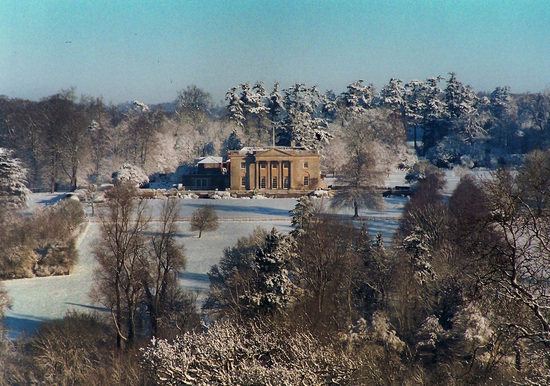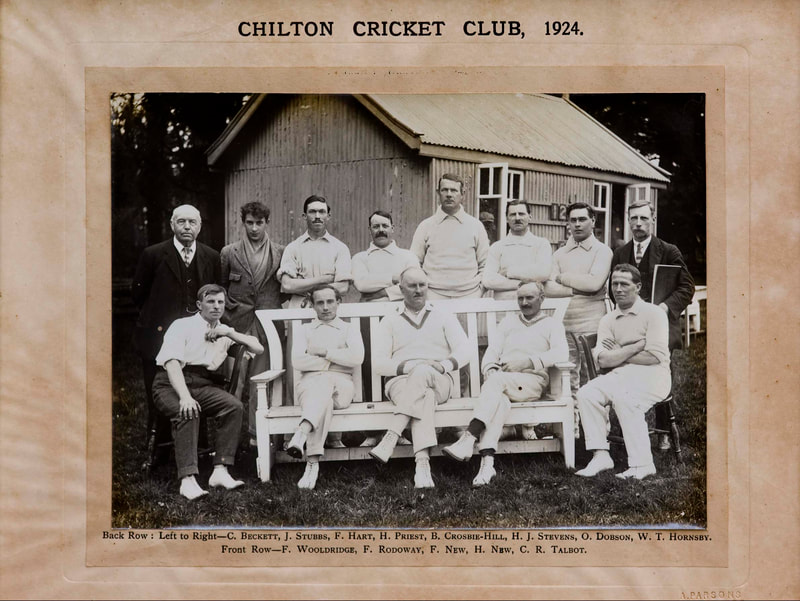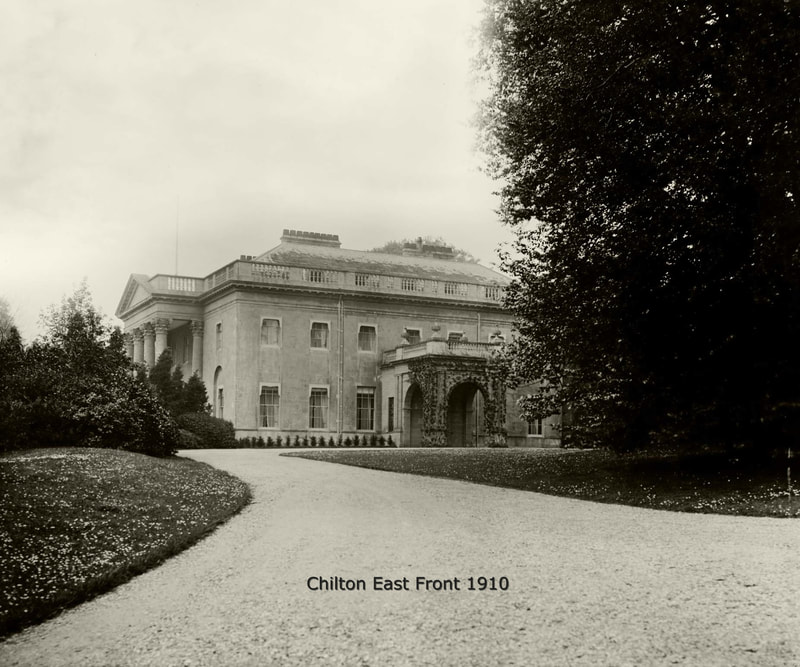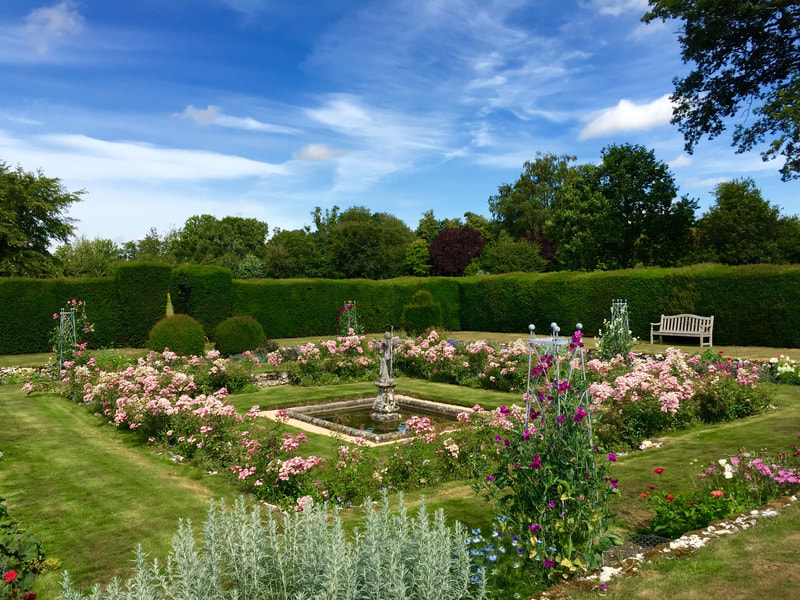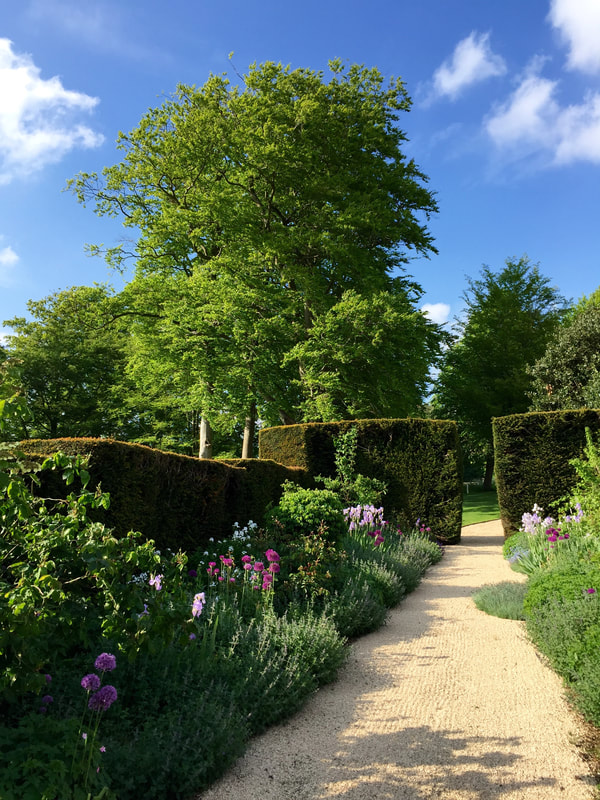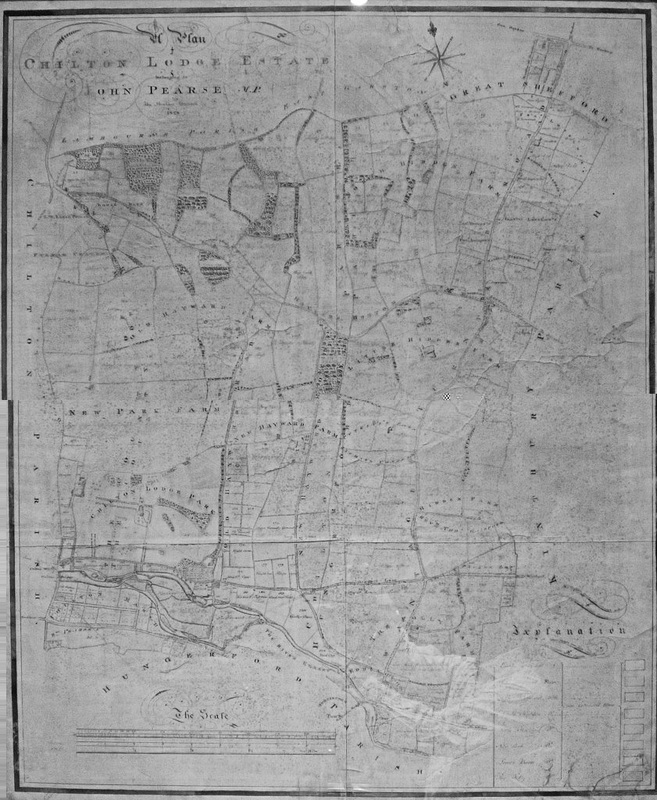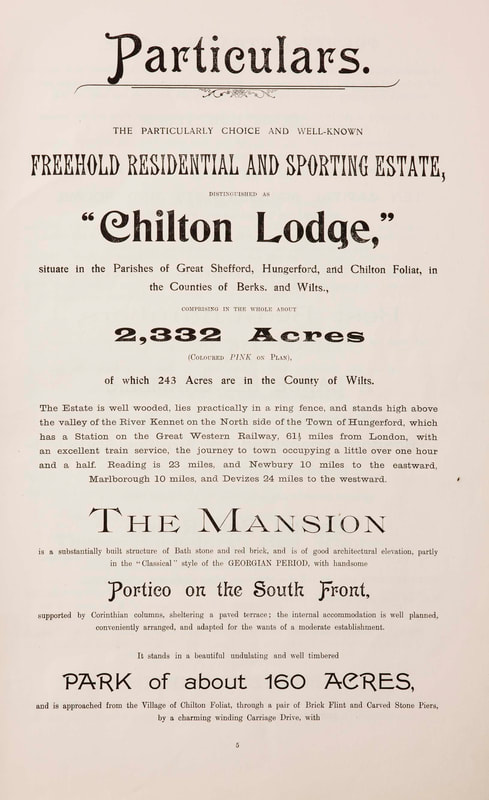The Estate and the House
The Chilton Estate was put together by John Pearse between 1785 and 1834. He built up a holding of some 2,300 acres outside Hungerford, to the north of the Bath to London road and to the west of the Oxford to Salisbury road. He built the present mansion in 1800 (designed by William Pilkington) and all of the farms that originally formed part of the estate, and planted much of the woodland.
A subsequent owner in the 1890s, Sir William Pearce (no relation), developed much of the estate housing and infrastructure that remains in use to this day. After his death in 1907, the estate was sold for the benefit of Pearce’s principal legatee, Trinity College, Cambridge.
Chilton Lodge and the surrounding Estate were acquired in 1908 by The Hon. John Ward and his wife, Jean. During the 1930s the design and manufacture of the Chilton Monoplane was based at Chilton Lodge (see page). At various stages during WWII, the park at Chilton was a base for up to 1,500 American airborne troops, and aircraft instruments were made in workshops at Chilton. After WWII, Chilton was renowned as the home of the Chilton shaver socket, the Chilton rechargeable torch and early dishwashing machines until the businesses were relocated to larger premises in Hungerford and later sold to American owners.
Sarah Scrope, the direct fourth generation descendant of The Hon. Sir John & Lady Ward, now owns and runs the Chilton Estate where she lives with her family.
A subsequent owner in the 1890s, Sir William Pearce (no relation), developed much of the estate housing and infrastructure that remains in use to this day. After his death in 1907, the estate was sold for the benefit of Pearce’s principal legatee, Trinity College, Cambridge.
Chilton Lodge and the surrounding Estate were acquired in 1908 by The Hon. John Ward and his wife, Jean. During the 1930s the design and manufacture of the Chilton Monoplane was based at Chilton Lodge (see page). At various stages during WWII, the park at Chilton was a base for up to 1,500 American airborne troops, and aircraft instruments were made in workshops at Chilton. After WWII, Chilton was renowned as the home of the Chilton shaver socket, the Chilton rechargeable torch and early dishwashing machines until the businesses were relocated to larger premises in Hungerford and later sold to American owners.
Sarah Scrope, the direct fourth generation descendant of The Hon. Sir John & Lady Ward, now owns and runs the Chilton Estate where she lives with her family.
